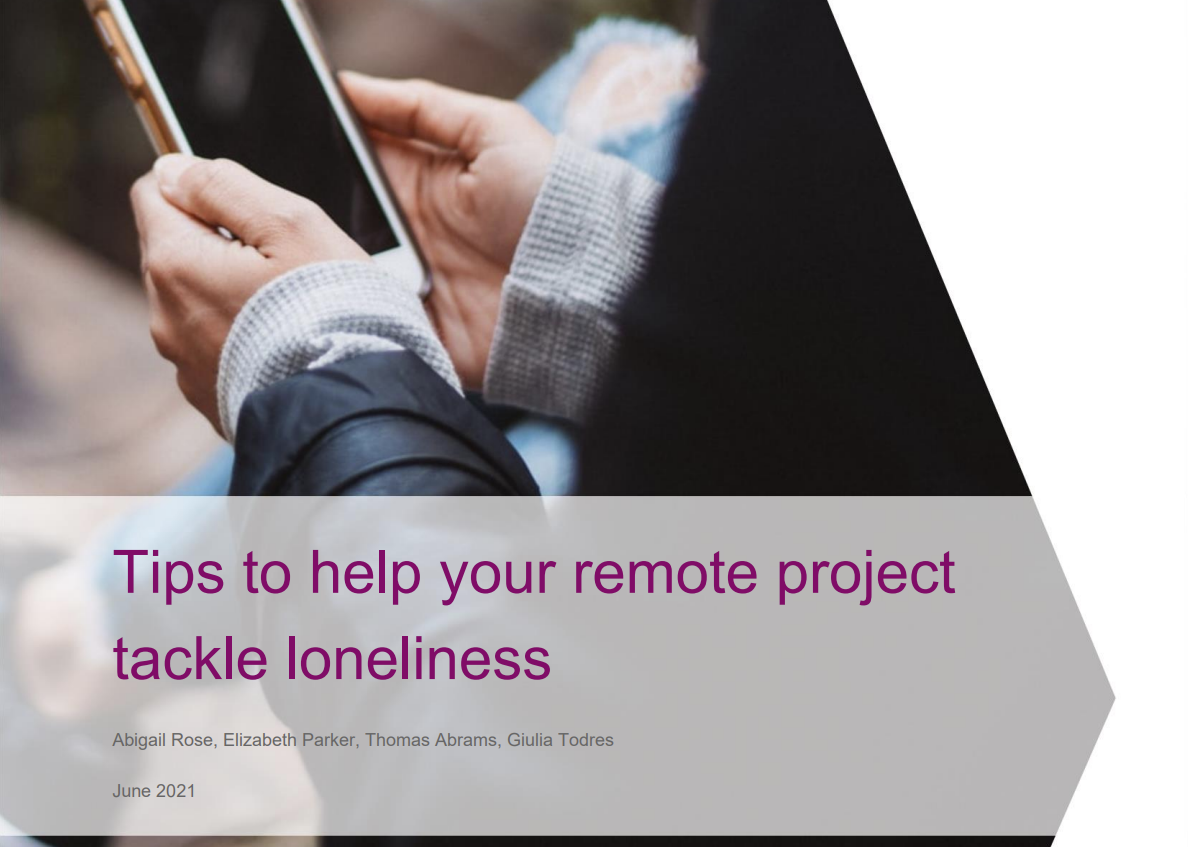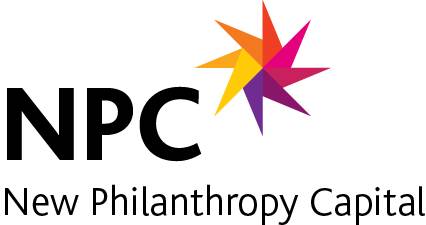Tips to help your remote project tackle loneliness
Downloads

Continually testing, gathering feedback, and implementing changes is the best way to adapt during extreme circumstances.
The pandemic has taught us that continuous learning is key to adapting services to prevent or reduce loneliness during times of change. It’s likely that charities will continue to offer a hybrid of remote and in-person services for many years to come, so it’s vital that the lessons learnt from Covid-19 are not forgotten.
Our tips to help your remote project tackle loneliness draws upon a developmental evaluation of the Building Connections Fund, the first ever cross government fund dedicated to reducing loneliness in England, delivered in partnership with The National Lottery Community Fund and the Co-op Foundation. NPC supported grant holders by sharing emerging good practice for addressing changing needs and rules throughout the Covid-19 pandemic.
The big lessons learnt by grant holders through the Covid-19 pandemic were to:
- Help service users increase their engagement with online activities and offer choice to meet different service users’ needs.
- Ensure support is consistent and reliable, with healthy relationships between staff and users and regular support to create trust and reassurance.
- Work together with local organisations to avoid duplication.
- Put appropriate safeguarding and privacy measures in place.
- Respond to changing user needs during different lockdowns or social distancing restrictions.
Covid-19 has forced charities to innovate faster than ever before. We hope that by publishing these tips for running a remote project to tackle loneliness we can help the many charities tackling similar challenges to build on these lessons, both now and in the future.
The paper
Authors: Abigail Rose, Elizabeth Parker, Thomas Abrams, Giulia Todres
In this paper, we address the issues, challenges and questions that were raised by Building Connections Fund (BCF) grant-holders as they adapted their services to the Covid-19 pandemic.
We wrote this guidance primarily for the 126 BCF grant-holders during the first stages of the Covid19 pandemic. However, we hope that by publishing what we’ve learnt it will be useful for the many other organisations tackling the same challenges, now and in the future.
This guidance was developed through a broad, rapid scoping review in April 2020, shortly after the first UK lockdown began, in which we selected the best available sources to address grant-holders’ concerns. We were careful to ensure these sources were from credible organisations, and these have been clearly referenced throughout. We updated our guidance in January 2021 to include relevant findings from the BCF developmental evaluation.
Accompanying blog
Deliver your loneliness service remotely or face to face?
When the first lockdown hit, there was an impressive shift amongst loneliness services to move online. We saw this first hand with our work on the Building Connections Fund (the first ever cross government fund dedicated to reducing loneliness in England, delivered in partnership with The National Lottery Community Fund and the Co-op Foundation). Almost all of the 126 grantees moved their services online (or to phone), or started new remote services within the first couple months. This provided a critical lifeline to so many service users when there was no alternative.
We collated best practice, captured and shared tips and learning for shifting to digital delivery in a live document and worked with grant holders to test and build on it. Then, as the first lockdown began to ease, organisations tentatively started dipping their toes back into face-to-face delivery by blending approaches. But they were struggling to know how best to balance face-to-face and remote delivery and anticipate service users’ preferences.
As Britain begins to unlock again, the same questions are being asked.
Of course, we’ve heard a lot about the advantages that come with online delivery over the last year. Such as allowing people from further away or with reduced mobility to participate easily, and for activities to be able go ahead rain or shine – helpful with British weather!
However, we also heard that online delivery cannot, and should not, totally replace face-to-face delivery. Not only can digital exclusion make people who are already disconnected feel more disconnected, but in the loneliness sector particularly, promising approaches highlight how one-to-one and group connections are central to tackling loneliness.
Online delivery must complement face-to-face delivery. In an increasingly digital future where more lockdowns are a possibility, organisations need to blend approaches flexibly and responsively. Different approaches naturally suit different people at different times – and we heard that offering a choice is critical.
The best way for existing services to understand how to strike the right balance won’t be surprising to frontline practitioners: it’s by talking to their service users and understanding their needs, preferences, and concerns. Working with the fund’s grantees, we developed a simple three-step framework for collecting feedback to inform such important decisions.
Unsurprisingly, our research found that throughout 2020 user’s needs, preferences and concerns weren’t stable. Therefore, to ensure support for service users is consistent and reliable, organisations need to work with their service users, continually gather feedback from them, test solutions, and implement changes to adapt responsively in times of uncertainty.
About the author
Thomas Abrams, Senior Consultant at NPC, managed the evaluation and learning partnership with the Building Connections Fund. NPC is a charity think tank and consultancy helping charities, philanthropists, corporates, and policy makers to maximise social impact.
Follow Thomas on Twitter at @ThomasAbrams52 and NPC at @NPCThinks
Downloads
![]()
[gravityform id=1 title=true description=true ajax=true tabindex=49]

